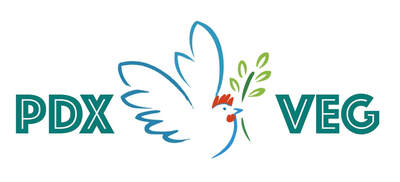Two sources of protein that can be very beneficial to most vegans are soy and wheat gluten. Unfortunately, some people are either allergic to one or both, or think that they are. If you suspect that these foods are causing trouble for you, you should certainly consult with a physician. However, it is worth noting that most people should be fine with consuming these foods.
Soy allergies are rare. They occur mainly in young children with atopic dermatitis, who often outgrow the allergy after 1-2 years of dietary elimination. Allergic reactions in adults are less frequent. Here is an excellent review on soybean allergens.
Celiac disease affects less than 1% of the population. Some people don’t have celiac disease but report intestinal discomfort after ingesting wheat. The prevalence of non-celiac gluten sensitivity in the general population is estimated to be slightly higher than 1%. It is worth noting that for the 98% of people without wheat issues, there is no evidence that a gluten-free diet has any benefits.
Even if you do have food allergies, it is still possible to be a vegan as demonstrated by the advice and recipes in Food Allergy Survival Guide: Surviving and Thriving With Food Allergies and Sensitivities by Vesanto Melina, Jo Stepaniak, and Dina Aronson.
On the flip side, Dr. Michael Greger reports that people who eat plant-based diets have lower rates of chemical, drug, and environmental allergies. He also reports that consumption of meat by pregnant women may result in an increased incidence of atopic diseases such as food allergies, asthma, hay fever, and eczema in their children.
Soy allergies are rare. They occur mainly in young children with atopic dermatitis, who often outgrow the allergy after 1-2 years of dietary elimination. Allergic reactions in adults are less frequent. Here is an excellent review on soybean allergens.
Celiac disease affects less than 1% of the population. Some people don’t have celiac disease but report intestinal discomfort after ingesting wheat. The prevalence of non-celiac gluten sensitivity in the general population is estimated to be slightly higher than 1%. It is worth noting that for the 98% of people without wheat issues, there is no evidence that a gluten-free diet has any benefits.
Even if you do have food allergies, it is still possible to be a vegan as demonstrated by the advice and recipes in Food Allergy Survival Guide: Surviving and Thriving With Food Allergies and Sensitivities by Vesanto Melina, Jo Stepaniak, and Dina Aronson.
On the flip side, Dr. Michael Greger reports that people who eat plant-based diets have lower rates of chemical, drug, and environmental allergies. He also reports that consumption of meat by pregnant women may result in an increased incidence of atopic diseases such as food allergies, asthma, hay fever, and eczema in their children.
Proudly powered by Weebly
